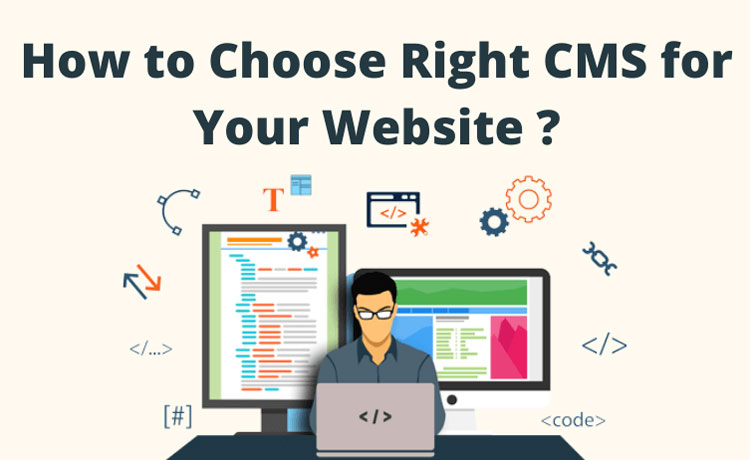When you’re starting out, it can be tough to know which CMS to choose for your business website. Even if you have an existing website, choosing the right one can be a challenge. Here are some tips and advice from experienced business owners to help make the decision easier!
What are the Different Types of CMSs.
A CMS is a software platform that enables web designers and developers to create, manage, and deploy websites. A variety of different types of CMSs are available, including those used for eCommerce platforms (e.g., Shopify), content management systems (CMSs) for social media sites (such as WordPress), or enterprise software (such as Oracle E-Business Suite).
What are the Different Types of Software for CMS
There are a variety of different software tools that can be used to build and manage a CMS websites. These include Ardor, Drupal, Magento, and Joomla. Some common tools for building a CMS websites include:
– code writing
– design
– development
– testing
– deployment
How to Choose the Right CMS for Your Business Website.
There are a number of different types of CMS that can be used for business websites. Some common CMS include WordPress, Drupal, and Magento. When choosing a CMS, it is important to consider the needs of your business and what features it would like its website to have. For example, if your business is primarily an online store, you may want to use a more traditional CMS such as WordPress or Drupal. If you are working with a mobile app or need an app that can be accessed from any device, then the App celebrator CMS may be a good choice. Additionally, there are many free and paid CMS available that can be used for small businesses. By researching different CMS and finding the right one for your specific needs, you can make sure that your website will meet all of your requirements and cost less than other options.
Find the Right CMS for Your Business Website
Once you have chosen a CMS, it is important to find one that meets the specific needs of your business website. Many CMS have built-in templates and tools that make creating a site easy and fun. However, not all CMS offer this level of functionality or support. To find the best fit for your website, it is important to compare different CMS and find one with which you feel comfortable working. You also want to consider how often your website will need maintenance (e.g., updates), as well as how much time you think it will take to get everything up and running on each particular system (e.g., WordPress vs Drupal). Finally, do not forget about security concerns when choosing a CMS; Make sure any data being stored on your site is properly protected by encrypting data storage methods and encrypting transmissions between servers).
Compare the Different Types of CMSs
After selecting acms and confirming its specific needs for your business website, it is now important to compare different types of cmss in order to get an idea which one might be best suited for your particular project – based on budget restrictions, features offered (or not offered), desired functionality (e.g., customer service responsiveness), etc.).
In addition to looking at these categories separately below, there are some other factors you may want to keep in mind when comparing CMS: performance (how fast pages load), scalability (how many sites will use the same software), compatibility (which languages can be used?), ease of use (does every feature work?), stability (has been tested against known bugs/issues?), robustness (can handle high volume traffic?), permissions/privacy settings (will anyone else have access to user data?). Ultimately, looking at these factors before making any final decisions will help ensure that you choose the best possible option for your business website!
Tips for Successful SEO and Content Delivery for Your Business Website.
1. Make sure your website is optimized for search engine crawlers. Your website’s title, meta data, and other HTML tags will help Google index and rank your site higher in search results.
2. Optimize your website for Yahoo! Search by using the following keyword phrases: “SEO”, “content delivery”, “Web Standards”.
3. Use a content management system (CMS) to manage all of the content on your website. A CMS can help you create and manage a single source of truth for all your content, including articles, videos, images, and other types of documents.
4. Optimize images for SEO by using the Google Image Optimizer tool or an image optimization service like Picmonkey or Hootsuite.
5. Optimize text for SEO by using the Google PageSpeed Insights tool or an online speed testing service like Speedtestz.
6. Use whitespace to make text more readable on screens larger than 480 pixels wide; use less white space on smaller screens; and use fonts that are designed for readability on websites rather than typefaces that might be too small or too big for some devices or browsers.
7. Use JavaScript to improve the performance of your website. JavaScript can help you load quickly and make your website more responsive.
8. Use CSS to style your website’s content and graphics. CSS can help you control how your website looks and performs, and it can also help save you time when creating pages or forms.
9. Optimize your images for delivery by using the Google Image Optimizer tool or an image optimization service like Picmonkey or Hootsuite.
10. Optimize text for delivery by using the Google PageSpeed Insights tool or an online speed testing service like Speedtestz.
Conclusion
Choosing the right CMS for your business website can be a daunting task. However, with some simple tips and optimization work, you can have a successful website that Boosts sales and brings in more customers. By using the right CMS for your business website, you can get the most out of your web presence. With careful planning and effort, you can ensure that your business is successful online.





